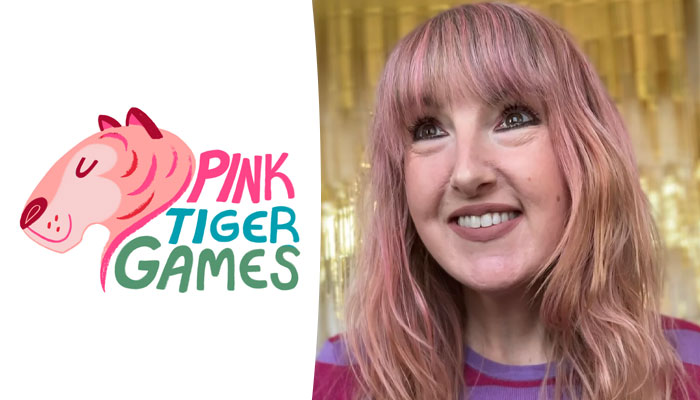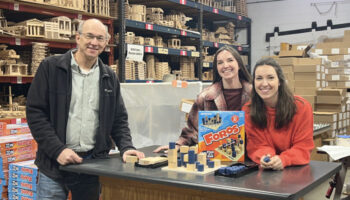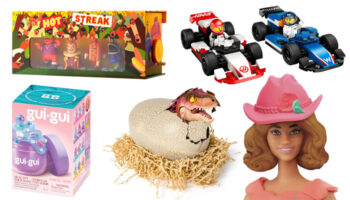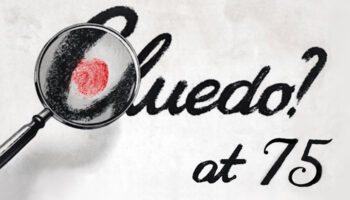Ami Baio on putting kindness, conversation and connection at the heart of Pink Tiger Games

Ami, it’s great to catch up! To kick us off, how did you find your way into game design? Was it always on the cards?
I love games, but if you’d told me when I was a kid that I’d be making them when I grew up, I never would have believed you.
This all started back in May 2017, when the idea for a card game randomly popped in my head while I was standing in my kitchen. I’d never designed a game before then, but that idea grew into You Think You Know Me, which I funded on Kickstarter and launched my game design career as Pink Tiger Games.
I’ve now designed and published five games – with game number six on the way – and the ideas keep coming!

How would you describe your approach to game design? Is there anything that connects your designs?
All of my games are designed to be sweet and kind, not mean-spirited or adversarial. I try to be as inclusive as possible, making sure everyone who plays belongs. And I also design every game to be quick and easy to learn, usually taking under a minute to learn how to play – partly because I have a hard time playing games with complicated rules!
What kick-starts your design process?
Every game idea starts with something I love, then I build the game around that concept. You Think You Know Me was inspired by the assumptions we make about one another on social media. Flatter Me is a compliment battle card game inspired by how hard it is for many people to give and receive compliments. Rabbit Rabbit is a superstitions trivia game inspired by my love of myths, magic, and folklore from around the world.
Each game absolutely informs and overlaps with the other, in part because they’re all trying to do the same thing: deepen our personal relationships through conversation and play.

Positivity flows out of your games and theme-wise, it’s very refreshing! Was this fresh approach a winner from the get-go?
Thank you so much, that’s an awesome thing to hear. I wasn’t sure how games like mine would be received, but since the beginning, my experiences have been so positive and so welcoming. I’ve heard so many stories from people who were affected by my games, bringing them closer to friends, family, or partners.
I’m also really lucky to have wonderful and supportive relationships with my partners in the game industry, who have helped my games reach a wider audience. I’ve truly had some pinch-me moments in the last six years, and it’s all thanks to the people who believe in what I’m making.
Great stuff. Let’s dive into a recent launch – Cloud Nine. For anyone that hasn’t seen it, how would you pitch the game?
In Cloud Nine, you collect the top nine things that make life wonderful for you. Each card has something to love – like bookstores or campfires – along with a few questions to prompt further conversation. Each player takes turns drawing cards from The Sky, a shared grid in the centre of the table, trying to get their top nine before anyone else. Action cards are hidden throughout the deck that can affect gameplay, like ‘The Wind’ which blows away The Sky and replaces it with another nine cards.
It takes 20 to 60 minutes to play, depending on player count, for two to seven players. I especially love the game illustrations, which were made by the brilliant artist and author Lisa Congdon.
Where did the idea for Cloud Nine stem from?
The idea was inspired by a Facebook post from game designer Eric Lang, which funny enough, had nothing at all to do with games! Last year I saw Eric post about the little things in life that made him feel “unreasonably excited”. Things like new socks or YouTube reaction videos… I realised we all have special things that make us feel connected and joyful, and in that moment, Cloud Nine was born.

Away from Cloud Nine, what of your other games would you say is the most underrated? We can give it some love and attention here!
I’d love to give a shout out to Lost for Words: A Game of Untranslatable Feelings – a card game inspired by how our brains process language and emotions – co-designed with my teenage son, Eliot. It includes over 300 unique words from over 70 different languages, both ancient and modern dialects, all emotion and experience words that are hard to translate… From craving salty foods to feeling nostalgic about something very specific. It also happens to be the game that most often gets people messaging me personal stories about impactful moments they experienced playing the game.

A lovely idea! And how do you fuel your creativity? What helps you have ideas?
So many things! Ideas can really come from anywhere. I read a lot – mostly non-fiction – and I love studying neuroscience, sociology, the science of emotions and trauma, personal growth and self-care. I listen to podcasts, I love art and travel, I collect clothes…
I care deeply about how people communicate and express themselves through all mediums. I just try to pay attention and listen – these are not things that I think come easily. Being empathic and aware is like working out and building muscles, I try not to miss a day in the figurative emotional gym.
My next game came from one of those observations: Hurt Party: A Game of Bad Apologies. It’s coming to Kickstarter in early 2024 and was inspired by how it hurts to know we hurt, and how we often approach apologising all wrong.
Hurt Party pokes fun at all the terrible ways we say we’re sorry, and most importantly, encourages everyone to embrace simple, authentic, and direct ways to apologise.
That sounds interesting – and on that, I’m sorry this chat has to come to an end! A huge thanks Ami. And anyone wanting to learn more about Pink Tiger Games should head to: https://pinktigergames.com.
–
To stay in the loop with the latest news, interviews and features from the world of toy and game design, sign up to our weekly newsletter here
























